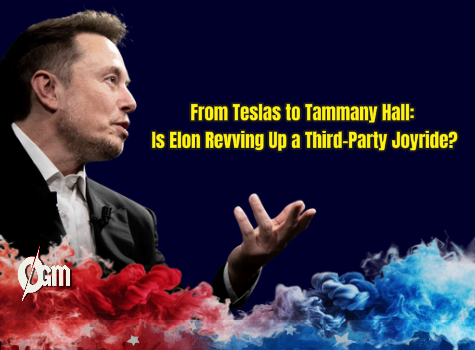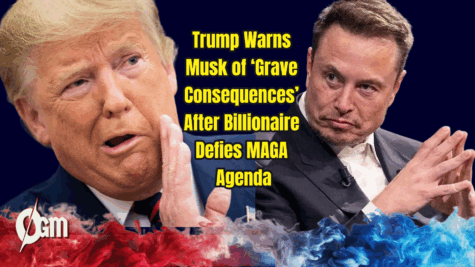Elon Musk says that a “new political party is needed in America to represent the 80% in the middle,” a statement that has sent shockwaves through both Democratic and Republican strongholds. In a post on X (formerly Twitter), the tech magnate lambasted the “hyper-polarized two-party system,” claiming it no longer reflects the nuanced views of most Americans and instead amplifies fringe ideologies for media ratings and campaign dollars.
Musk asserts that millions of citizens feel politically homeless, caught between “tribalism masquerading as governance.” He emphasized that the dominant parties have become echo chambers driven by corporate money and divisive rhetoric, leaving moderates disenfranchised. His remarks have ignited fierce debates among political analysts, with some hailing his vision as democratic revivalism while others accuse him of naive utopianism.
The ‘Middle Majority’: Musk’s Vision of Centrist Power
Elon Musk says that the silent majority—those who don’t identify with extreme left or right ideologies—has been systematically ignored by Washington elites. He believes this ‘middle 80%’ harbors practical, common-sense values that could form the backbone of a new political movement. Musk proposes a coalition of independents, moderates, and pragmatic thinkers who prioritize evidence over ideology.
According to Musk, this new party wouldn’t be about “left vs. right,” but “competence vs. incompetence.” It would aim to restore dignity to public discourse, uphold civil liberties, and apply rationality to urgent issues like climate change, AI governance, healthcare reform, and economic fairness. The party would reject identity politics and culture wars in favor of unity and results-driven policymaking.
Silicon Valley Powerbrokers Whisper Support
Elon Musk says that he’s not alone in this thinking—several influential tech leaders and venture capitalists have privately signaled interest in supporting such a party. While none have gone public yet, insiders suggest that names like Marc Andreessen, Peter Thiel, and Chamath Palihapitiya have all expressed frustration with America’s political duopoly and may back alternative political infrastructure.
Musk’s call may catalyze a rare convergence of money, media, and tech innovation to create a third-party vehicle capable of surviving America’s winner-take-all electoral system. Experts warn, however, that breaking the structural advantages of Democrats and Republicans will be a monumental task requiring legal reform, grassroots mobilization, and generational patience.
OGMNews.COM
Fury from the Left and Right: A Threat to the Status Quo

Elon Musk says that entrenched political interests will “do everything in their power” to crush any attempt at forming a viable third party. Already, pundits from MSNBC and Fox News have mocked the idea as “billionaire vanity” and “Silicon Valley delusion.” High-ranking politicians have called it dangerous, arguing that splitting the vote would ensure chaos and empower extremists.
Despite these warnings, Musk remains undeterred. He argues that maintaining the current system is the greater danger, as trust in institutions continues to erode and political violence simmers under the surface. “The status quo isn’t stable,” Musk warned. “It’s a slow-motion collapse masked by partisan theatrics.” His rhetoric, both compelling and incendiary, is inflaming passions across the ideological spectrum.
Historical Echoes: Is America Ready for a New Party?
Elon Musk says that history is on his side, pointing to past moments when political realignment reshaped the American landscape—such as the emergence of the Republican Party in the 1850s. He argues that today’s climate mirrors that era’s disillusionment with establishment politics and that technological advancements now enable decentralized organizing and direct-to-voter messaging.
However, political scientists caution that no third party has succeeded at the national level in over a century, largely due to ballot access laws, the Electoral College, and first-past-the-post voting. Still, Musk believes a hybrid model—leveraging independent runs, fusion tickets, and high-profile endorsements—could create a wedge wide enough to drive realignment.
Next Steps: A Movement or a Megaphone?
Elon Musk says he is “seriously considering” backing a political convention or digital platform to begin organizing this new centrist force. He has hinted at using X as a launchpad for virtual town halls, candidate vetting, and policy incubators—potentially turning it into a digital headquarters for what some are calling the “Middle Way Party.”
Critics argue Musk’s erratic political history—fluctuating between endorsements of both Democrats and Republicans—makes him an unreliable figurehead. But supporters say his unpredictability is proof of his independence. Whether this effort manifests into a structured party or fizzles as another Muskian experiment remains to be seen, but one thing is clear: the gauntlet has been thrown. And Washington is paying attention.














